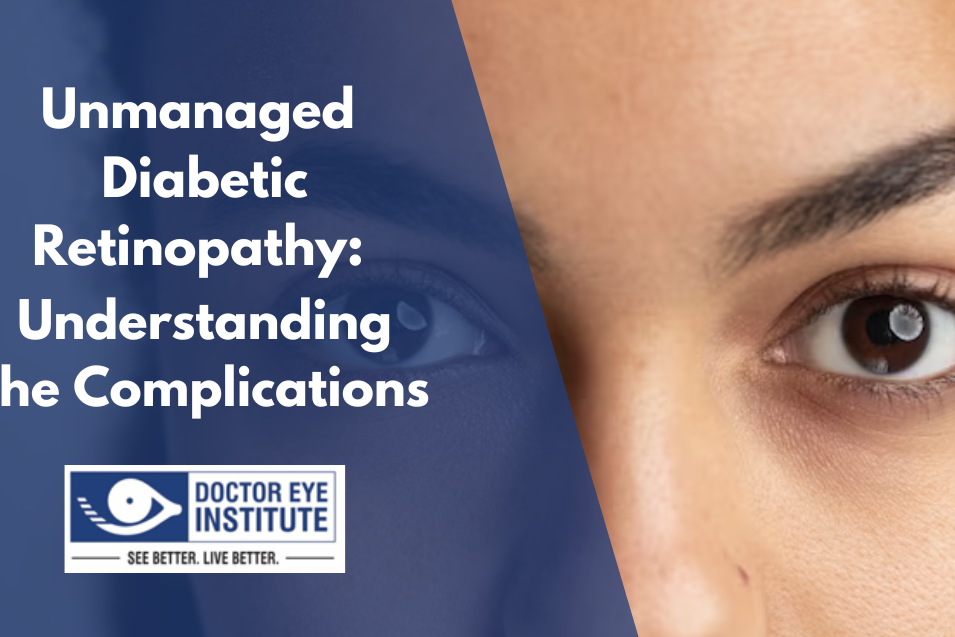Diabetic Retinopathy: Understanding the Complications
Diabetic retinopathy is a serious eye condition that affects individuals with diabetes. When left unmanaged, it can lead to various complications that significantly impact vision. In this blog post, we will explore four common complications of unmanaged diabetic retinopathy and their implications on eye health.
Retinal Detachments and Neovascularization:
Uncontrolled diabetic retinopathy can cause abnormal blood vessels to grow on the surface of the retina. These fragile vessels can leak blood and fluid, leading to retinal detachments. If left untreated, retinal detachments can result in severe vision loss or even blindness. Early detection and treatment of diabetic retinopathy are crucial to prevent this complication.
Cataracts and Glaucoma:
Individuals with unmanaged diabetic retinopathy have a higher risk of developing cataracts, a condition characterized by clouding of the eye’s lens. Additionally, they are also prone to developing glaucoma, a condition that damages the optic nerve and affects peripheral vision.
Regular eye examinations and appropriate management of diabetes can help reduce the risk of cataracts and glaucoma
Macular Edema:
Macular edema occurs when fluid accumulates in the macula, the central part of the retina responsible for sharp vision. Uncontrolled diabetic retinopathy can lead to this condition, causing blurred or distorted vision. Treating the underlying diabetic retinopathy and managing blood sugar levels are essential in preventing or managing macular edema.
Visual Loss and Blindness:
One of the most severe complications of unmanaged diabetic retinopathy is visual loss and blindness. As the condition progresses, the damage to the blood vessels and retina can result in permanent vision impairment. Regular eye check-ups, early intervention, and diligent diabetes management are vital in preventing or slowing down the progression of visual loss.
Unmanaged diabetic retinopathy can have serious consequences on eye health. From retinal detachments and neovascularization to cataracts, glaucoma, macular edema, and even blindness, the complications of this condition can significantly impact one’s quality of life.
It is crucial for individuals with diabetes to prioritise regular eye examinations, manage their diabetes effectively, and seek timely treatment from an eye specialist to prevent or minimise the risk of these complications. Remember, early detection and proactive management are key to preserving vision and maintaining overall eye health.









